Turkey is a valid example of what I spoke of in my Shifting Sands of the Dictator opinion piece last Sunday. For decades, the citizens of Turkey lived under a military dictatorship, or under the seemingly benevolent rule of authoritarian governing. It was not until 2002 that the nation dared to attempt, on stumbling and uncertain legs, to be an actual democracy in anything but name.
Apparently the country was not yet ready. The April 16th referendum effectively crushed the democratic hopes and aspirations of the Turkish nation, a nation that had not yet educated its people about the concept of democratic experimentation. The predictable outcome of the referendum reversed the course of the country, from attempting to be a progressive democracy, to becoming the latest autocracy. And it did so by populist vote. Just like Russia in the early 90s, it ascended amidst applauds from the West only to crash and burn in flames years later. A descent towards rule by strongmen for whom democracy and freedom are mere battle cries in a quest for unopposed power.
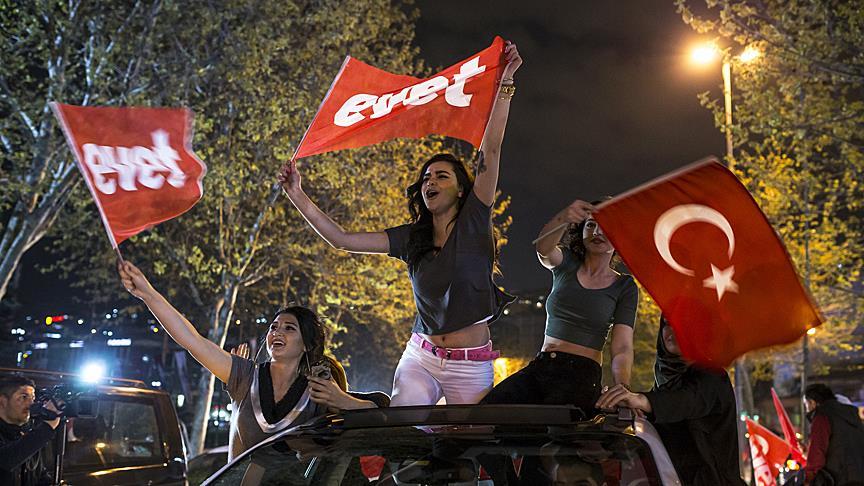
In some ways, Erdogan might even be more powerful than Ataturk had been, since the Western powers are presently unable to operate in the region without the support of Ankara. The outcome of the Syrian war, Russia’s position in the Middle East, and NATO air capabilities in the region, are all dependent on how the West handles its affairs with Erodgan. Or rather, how he decides to handle his affairs with the West.
Live- Citizens demanding annulment of referendum results rally in Kadikoy, Istanbul @HaziranKadikoy pic.twitter.com/qQylPbrjvg
— Mutlu Civiroglu (@mutludc) April 23, 2017
Since the failed military coup in July 2016, Turkey has been in a temporary state of emergency, a state which gives the executive branch, presently under the leadership of Erdogan, immense power over all segments of the government. The constitutional referendum sought to provide much of this power to the President, permanently. The referendum does not only abolish the office of the Prime Minister, but also replaces the existing parliamentary system with a strictly presidential system, and provides the President with ultimate control over the legal system.
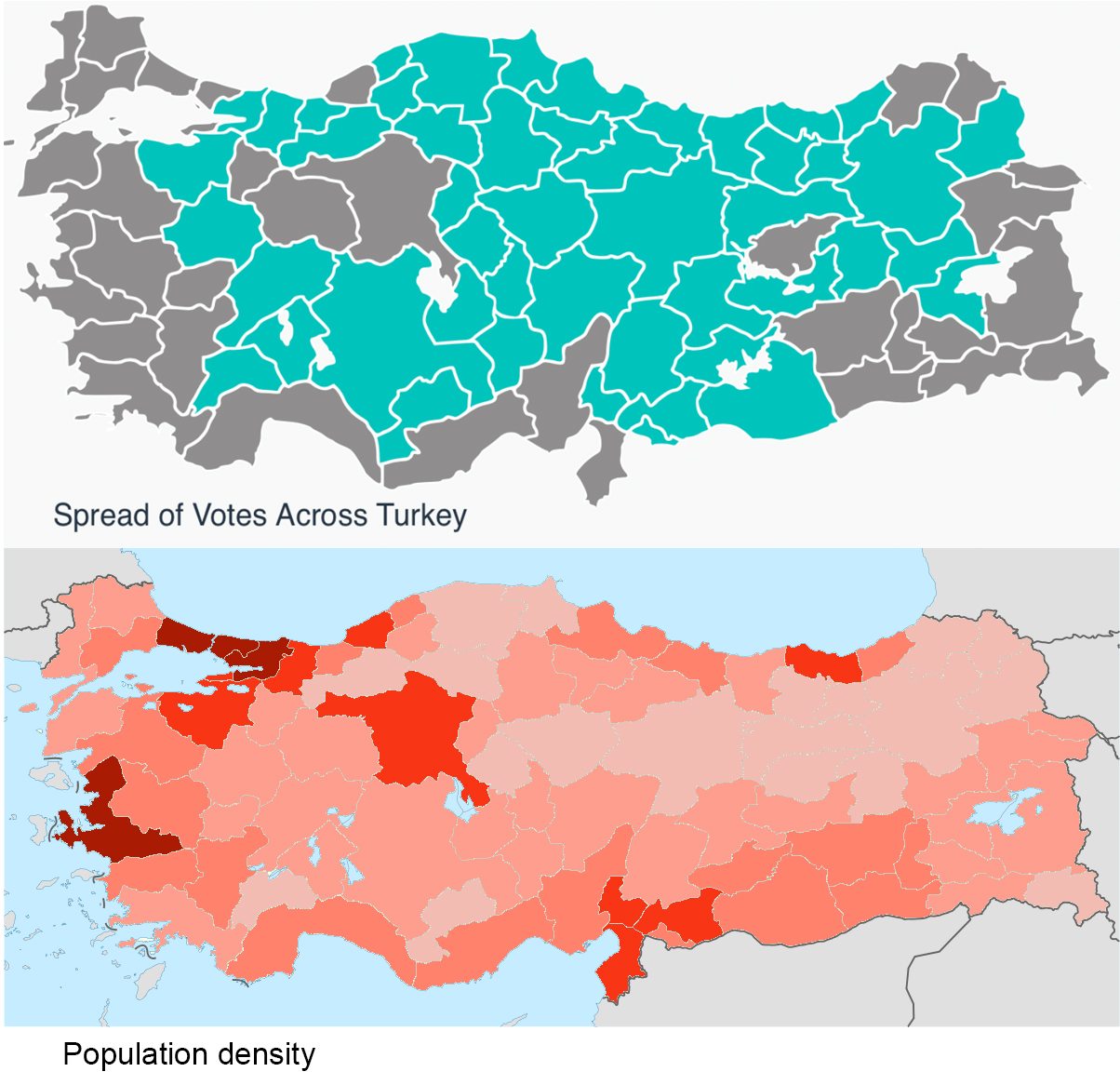
No doubt inspired by Russian President Vladimir Putin’s moves, the referendum also provides Erdogan with the possibility, under controlled circumstances, to rule until 2029, or even 2034, assuming he can continue to control the public vote. The referendum states that the president will be limited to two terms, unless parliament cuts short the second, in which case he can run for a third. In fact, Erdogan was so certain of victory that he claimed it before all the votes had been tallied, stating that “My nation stood upright and undivided [..] April 16th was a victory for all of Turkey” hours before the official numbers were in. The referendum won by 51.41% of the votes, with 98.26% of the votes counted being deemed valid, and an 85.32% voter turnout.
The Presidential referendum is widely believed to have been part of the Erdogan master plan all along. But the attempted coup d’etat in 2016 put his ambitions in overdrive, along with his popularity amongst those searching for a Turkish strongman promising to revive the might and influence of the Ottoman empire. Erdogan’s promise of Turkish greatness plays well in the new millennial revived nationalistic tendencies, mirroring the dogma of Russian President Putin, and American President Donald Trump. It is also strongly reminiscent of the populistic and shallow promises made by Austrian-German leaders shortly before World War 2. During Erdogan’s years as prime minister, between 2003 and 2014, he sought to demonize any and all that opposed his rule. Socialist reformists, leftists and liberals, Kurds, segments of society not likely to vote for him in any shape or form, were his targets. Erdogan, instead, relies on a strong Islamist and nationalistic voting base.
https://twitter.com/MustafaEdib/status/854409181398523906
Under Erdogan’s rule Turkey has seen strong economic growth, in no small part due to considerable investment by the government in infrastructure, and increased ties with Europe, with Turkey being the gateway, in both an economic and military sense to the Near East. If Europe can control that gateway, it can control trade with the Middle East, including gas pipelines into Europe from the Iranian and Russian spheres of influence. In other words, the same advantages that made the Ottoman Empire a viable power for centuries, are what keep European interest in the affairs, and stability, of Turkey.
Despite attempts by the European Union, and NATO to stabilize the country through strategic trade, the leadership of the increasingly powerful Erdogan government continued to polarize the country, while right-wing and Islamist movements continued to grow. In 2015 Erdogan then launched a wide and aggressive military offensive against the Kurds. Through this, he created a situation where the need for security and stability outweighed the need for freedom. Erdogan’s supporters, consisting of about half of the country’s voting base, zealously rallied around him as a strongman that could bring safety to the country. His critics, profoundly resentful of his actions and rhetoric were pushed aside, often brutalized by security services, finding little common ground to build a consensus upon.
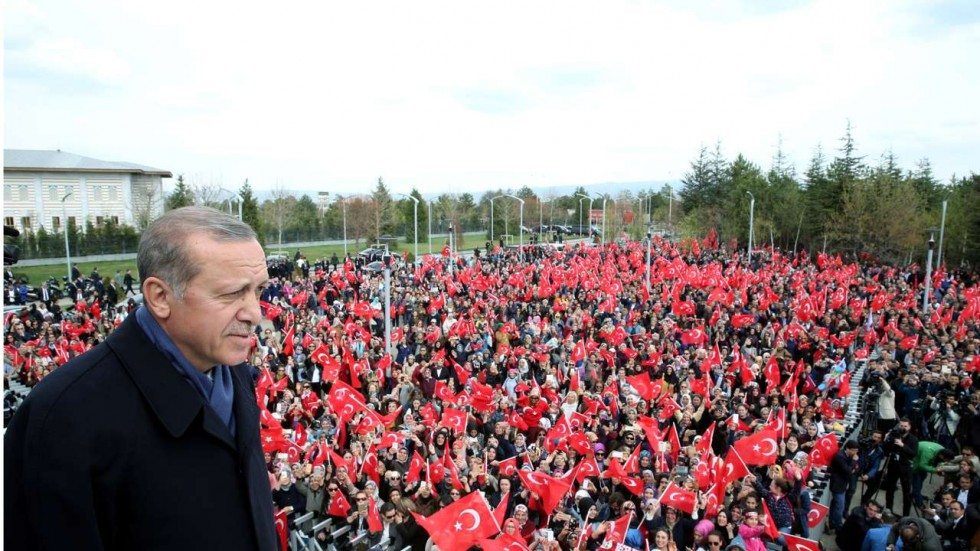
If you’ve got them by the balls, their hearts and minds will follow.
― Theodore Roosevelt
Turkey has in recent years, under the guidance of Erdogan, seen much of the same progression away from democracy as that of Russia under Putin. Erdogan did what any good artist might do – he copied Putin’s Machiavellian masterpiece and made it his own. Putin sought, and succeeded, in controlling public perception and the stability of the country, achieving greater and greater powers with every public vote.
Today Putin can, with ease, be considered a democratically elected dictator. Erdogan is not far behind. He has revived Turkish nationalism in a way many European observers did not believe could be done in such a short time – by using the offensive on the Kurdish Workers Party (PKK) in 2015 to truly solidify his base as the must-have stabilizer and defender of the nation. In the aftermath of the attempted coup d’etat, Erdogan was able to remove hundreds of thousands from government positions, virtually without any evidence, all while receiving standing ovations from the masses. Even the designers and perpetrators of the Great Purge of the Soviet Union would be impressed.
Now with the referendum in place, with votes having been counted, a majority of Turks seemingly desire absolutist rule. This makes Turkey the latest, if not de facto, near dictatorship-state to emerge through apparent public opinion. The referendum not only made Erdogan the most powerful man in Ankara, it made him a Sultan.
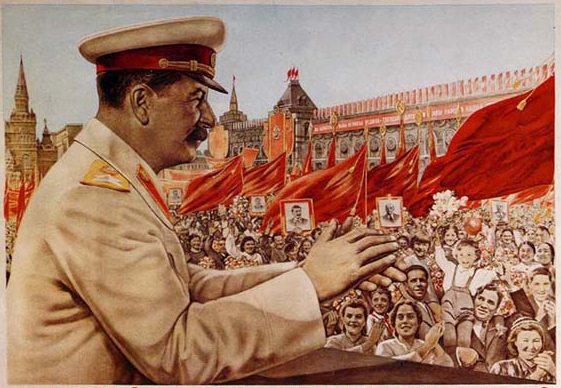
However, all is not right in the new Turkish empire. The victory that Erdogan saw, with or without perceived meddling with public opinion or vote counting, was not the grand victory that he and his supporters were expecting. With over 48% of voters, mainly those in the metropolitan cities, having voted against the referendum, he rules over a divided empire. The referendum only furthers the divides inside the country, solidifying Erdogan’s support outside of the cities, and eroding it further inside the cities. Even before the election had begun, outside observers accused the government of stacking the odds in its favor. The opposition inside the country accused the President, and his party, immediately after the election of foul play.
There is no doubt that Erdogan could not be more pleased with how the aftermath of the attempted coup d’etat played out. He could barely have masterminded the chain of events any better if he tried.
John Sjoholm, Lima Charlie News
[Edited by May Hamza and Anthony A. LoPresti][article submitted April 21, 2017]
John Sjoholm is Lima Charlie’s Middle East Bureau Chief, Managing Editor, and founder of the consulting firm Erudite Group. A seasoned expert on Middle East and North Africa matters, he has a background in security contracting and has served as a geopolitical advisor to regional leaders. He was educated in religion and languages in Sana’a, Yemen, and Cairo, Egypt, and has lived in the region since 2005, contributing to numerous Western-supported stabilisation projects. He currently resides in Jordan. Follow John on Twitter @JohnSjoholmLC
Lima Charlie World provides global news, featuring insight & analysis by military veterans, intelligence professionals and foreign policy experts Worldwide.
For up-to-date news, please follow us on twitter at @LimaCharlieNews
In case you missed it:

![Image Erdogan's referendum, the end of Turkey's democracy? [Lima Charlie News]](https://limacharlienews.com/wp-content/uploads/2017/04/erdogan-vojska.jpg)
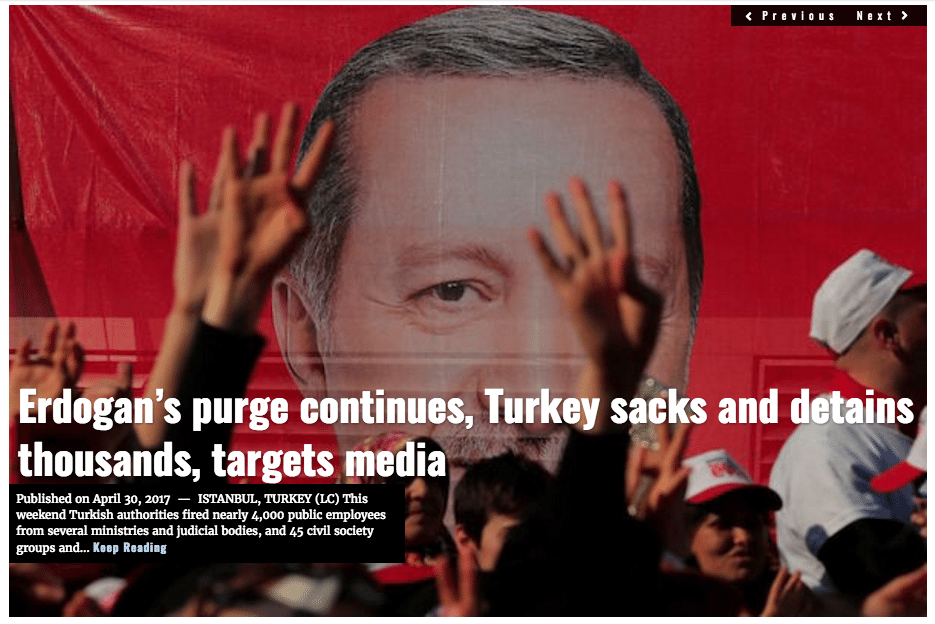
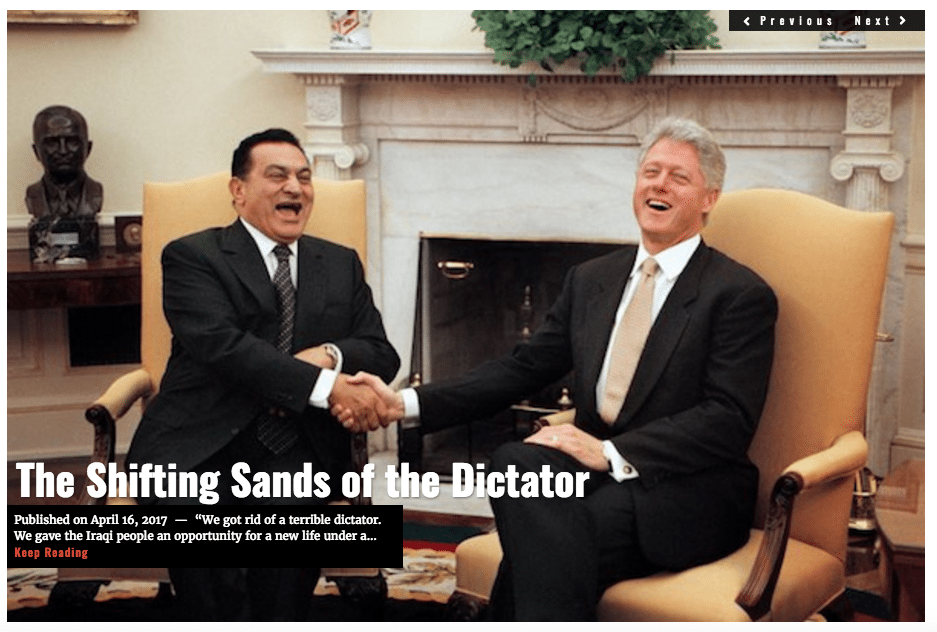

![Blossoming Russo-Turkish alliance leaves U.S., NATO behind [Lima Charlie News]](https://limacharlienews.com/wp-content/uploads/2019/07/Russia-Turkey-alliance-leaves-U.S.-NATO-behind-480x384.png)
![Image The Alevis Dilemma [Lima Charlie News]](https://limacharlienews.com/wp-content/uploads/2019/04/Alevis-Erdogan-480x384.png)
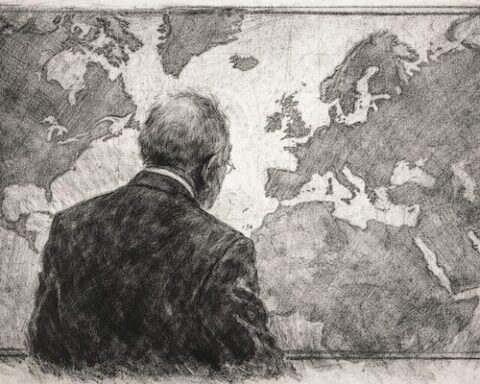

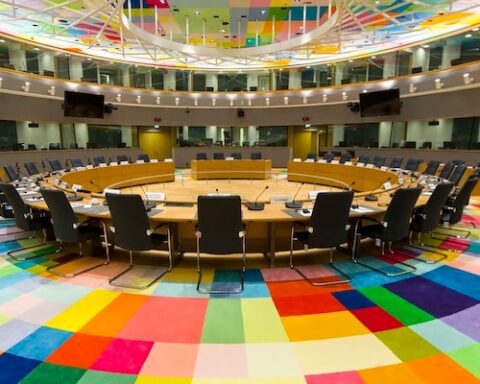


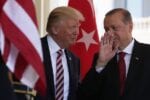
![Blossoming Russo-Turkish alliance leaves U.S., NATO behind [Lima Charlie News]](https://limacharlienews.com/wp-content/uploads/2019/07/Russia-Turkey-alliance-leaves-U.S.-NATO-behind-150x100.png)